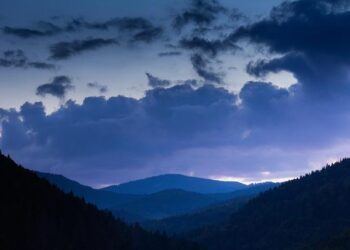Cardinal P√©ter ErdŇĎ: A Central Figure in Hungary’s Political and Religious Landscape
In a important development within Hungary’s political and religious spheres, Cardinal P√©ter ErdŇĎ has garnered the support of Prime Minister Viktor Orb√°n. As the Archbishop of Esztergom-Budapest and a prominent leader in the Catholic Church, ErdŇĎ‚Äôs potential rise underscores not only his influence within religious circles but also the intricate interplay between faith and governance in Hungary. Orb√°n‚Äôs backing of ErdŇĎ, who has consistently advocated for Christian values, highlights the growing impact that church leadership has on shaping government policies and public dialog. This alliance may have implications that reach beyond Hungary’s borders,contributing to wider discussions about religion’s role in contemporary governance across Europe. The National Catholic Reporter suggests that ErdŇĎ‚Äôs candidacy could significantly influence both the Church’s position and future policy directions in Hungary.
Cardinal ErdŇĎ‚Äôs Influence on Hungarian Politics
Cardinal P√©ter ErdŇĎ is emerging as a pivotal figure influencing modern Hungarian politics through his close ties with Prime Minister Viktor Orb√°n. Recognized for his conservative views aligned with national interests, ErdŇĎ‚Äôs impact extends well beyond spiritual matters into political domains. His strong relationship with Orb√°n represents a mutual commitment to integrating Catholic principles into national policy frameworks. This partnership carries substantial implications for Hungary’s future trajectory by providing moral legitimacy to governmental actions.
Several key factors highlight Cardinal ErdŇĎ‚Äôs increasing significance within Hungary’s political arena:
- Moral Authority: He frequently provides ethical insights that resonate closely with Orbán’s stances on pressing issues such as immigration policies and family structures.
- Civic Engagement: By actively engaging with communities, he cultivates unity that bolsters Orb√°n’s political objectives.
- Institutional Influence: As Archbishop of Esztergom-Budapest, he holds considerable sway over educational institutions alongside ecclesiastical matters.
This developing alliance between Cardinal ErdŇĎ and Viktor Orb√°n raises critical questions regarding the intersection of religious authority with state power. Their collaboration could establish new benchmarks for how spiritual leaders engage in policymaking processes affecting social welfare and economic strategies alike. As both figures navigate domestic challenges while maintaining their partnership, it is likely that ErdŇĎ will continue to enhance his role as both a spiritual mentor and a political influencer.
Analyzing Church-State Dynamics Under Viktor Orb√°n
The relationship between church entities and state governance has experienced notable transformations during Viktor Orb√°n‚Äôs administration‚ÄĒoften characterized by strategic alliances merging religious authority with governmental frameworks. Frequently viewed as one of Orb√°n‚Äôs favored clerical representatives, Cardinal P√©ter ErdŇĎ has played an essential role in implementing policies aimed at amplifying the Catholic Church’s presence within public life while reflecting broader governmental goals centered around ‚ÄúChristian democracy.‚ÄĚ Notably, increased financial support for church-run schools raises concerns regarding secular education versus potential religious indoctrination within public systems.
A variety of initiatives illustrate how this collaboration manifests throughout Hungary:
- Sustained Financial Investment in Religious Programs: The government has allocated significant resources towards initiatives associated with churches which advocates argue are crucial for fostering community values.
- Laws Enhancing Ecclesiastical Participation: Recent legislation enacted underOrb√°n facilitates greater involvement from churches in shaping public policy decisions impacting education systems and social services.
- Cultural Promotion Initiatives:The government collaborates closely with ecclesiastical authorities to promote narratives portraying Hungary as a bastion of Christianity within Europe‚ÄĒtapping into nationalist sentiments among citizens.
| Description | Status/Details |
|---|---|
| Total Funding Allocated to Churches | Around ‚ā¨1 billion directed towards church-related projects since 2010 |
Impact of Religious Leadership on Hungarian Society
The rise of cardinal-centric leadership highlights an intriguing convergence wherereligious influence intersectswith political governance.
As Prime Minister Viktor Orb√°n endorses Cardinal P√©ter ErdŇĎ,
the ramifications for Hungarian society could be profound.
Elevating such an influential religious figure may signify deeper entrenchment between ecclesiastical authority
and state control,
potentially leading toward shifts favoring conservative Christian values across various sectors including education,
family law,
and social services.
This transition may prioritize traditional values over progressive secular approaches.
Beyond immediate political consequences,
the effects onHungarian civil society are noteworthy.
Erd√≥’s leadership might inspire renewed faith-based initiatives fostering community engagement through socially-driven programs led by churches.
However,this alignment risks polarizing opinions among citizens
with some feeling marginalized by this hierarchical structure.
There exists potential danger concerning increased intolerance towards non-traditional lifestyles or beliefs suggesting an urgent need
for open dialogue among communities facing these changes.
As these developments unfold,
the long-term impacts on civic institutions,
social cohesion,
and minority rights warrant careful examination.
Conclusion: Navigating Future Interactions Between Faith & Governance
To sum up,
the prospective candidacy position held by Cardinal Péter Erde underscores complex relationships existing between religion & politics throughout contemporary Hungarian society.
As Prime Minister Victor Orban navigates intricate landscapes ahead;
Erdos’ alignment significantly strengthens him positioning him favorably amongst observers keenly watching how dynamics evolve further impacting not just local Catholics but also shaping national identity & policy overall.
The ongoing discourse surrounding Erdos’ elevation remains critically relevant across both spheres -politics & religion alike.
















